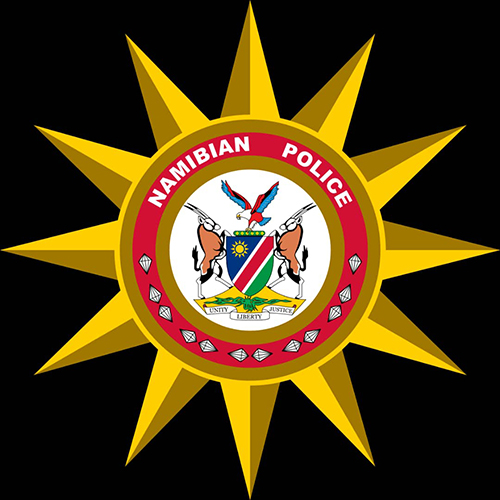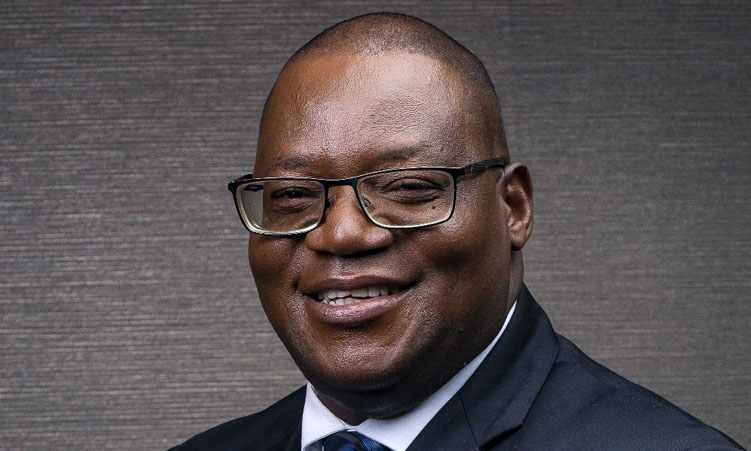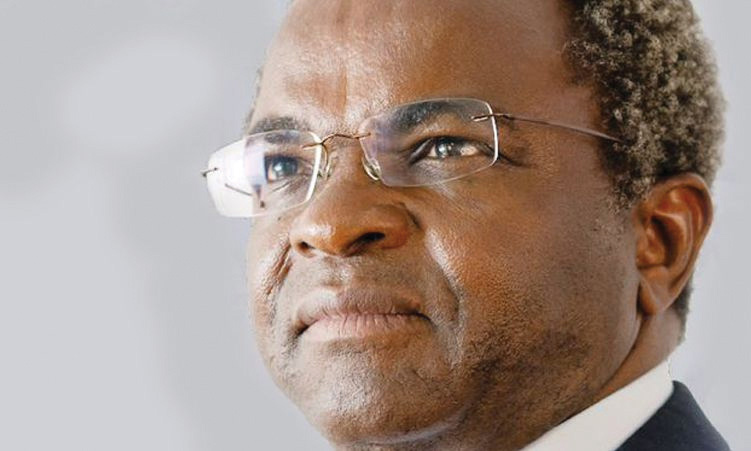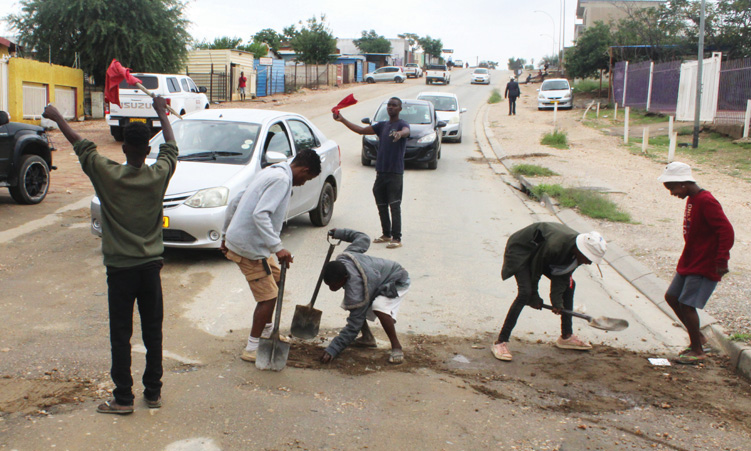BROWSING through the July 25 edition of The Namibian, my eyes fell on a report that makes it clear that Unam has deprived itself of the right to be called a university.
The report is headlined ‘Unam says it wants to hear from Swanu duo’ and refers to disciplinary steps against two academics for holding political office. I don’t know the outcome but consider myself entitled as a Namibian-born alumnus of the Universities of Cape Town and Oslo, where I now reside, to consign Unam to the category of tribal colleges that were the brainchildren of the apartheid regime in South Africa.It was to escape the insult of instruction in a tertiary institution designed for a particular ethnic group that I applied to UCT – before I raised the money for my studies and had to borrow, with a third of my grandfather, Johannes Timotheus Beukes’s farm as surety.Loans from the Administration in Windhoek were available to white school graduates, but not to Basters from Rehoboth.During my second year at UCT I won a scholarship for three years at the University of Oslo, a scholarship that was offered to a black student at one of the SA universities – in solidarity with students who on the basis of colour were put under threat of exclusion from South Africa’s only internationally recognised universities.This also catapulted me into the struggle, spearheaded by Mburumba Kerina and joined by Jariretundu Kozonguizi, to raise international support for the independence of then South West Africa, in Scandinavia and alongside them at the UN – against South Africa’s determined efforts to gain recognition of its de facto annexation of our country of birth.It was an innings, in sporting language, that we happened to win decisively that year, 1959, when the UN adopted a resolution, to open a case at the International Court of Justice to test whether apartheid in SWA was in keeping with South Africa’s obligations under international law.That resolution put SWA on course to its inevitable independence as Namibia when the Cold War came to an end.At Cape Town one of my teachers was Professor Jack Symonds, a member of the SA Communist Party, but it never occurred to UCT to raise questions about his competency and integrity as an academic, much less ask him to resign.It was a ban by the Apartheid regime against him lecturing or publishing that compelled him to flee to Zambia, where we again met in 1975.By demanding that for political reasons two academics resign (does it lack the courage to fire them?) Unam walks the trail left by a regime that has done Southern Africa great harm.In Scandinavia, from where the “liberation movement” drew unstinting moral and financial support, not least from the academic community – the principal and professors at the University of Oslo in 1963 publicly signed a demand that South Africa be divested of its privilege to govern SWA – it wouldn’t occur to anybody to question the political affiliation of academics.One of those professors, Arne Næss, an internationally recognised philosopher, told me, “here you can do research into anything you wish – as long as your results may be verified”.Left unsaid was the understanding that the results pursued would advance knowledge in the field – a service to the society on whose resources the researcher depends for a living.Professor Berit Aas, one of Scandinavia’s leading feminists, was the leader of an opposition party, The Socialist Left Party, while one of the current leaders of the Norwegian Conservative Party is a professor of theology at that university.During that country’s occupation by Germany from 1940 to 1945, academics, students, in fact the whole educational system, formed part of the resistance movement.The engagement of its academics in the political field, whether holding political office or membership of political parties or not, expressly to advance the welfare of the people, is recognised as having lifted Norway from grinding poverty as late as the 1930s, to its current status as one of the world’s richest societies.It is an understanding of what universities are about that Namibia’s academic community would seem to be in dire need of being reminded.A university ought to be setting the tone for a country’s ambitions in the field of education – the sine qua non of freedom to make choices: wisely.One of those choices facing all concerns the sort of society we want to be part of.A question in that connection that needs to be addressed, urgently, one from which one would expect guidance from the people paid to think as a service to the nation, is how the resources ought to be used to enable its citizens to make a decent living.A primary requirement is the training of informed, critical thinking by students willing to question received wisdom.By demanding the resignation for political reasons of two academics, Unam’s leadership is doing a disservice to the nation.It signals two things: firstly that they regard Unam as the custodian of “truths” that are not to be questioned; and secondly, that Unam is not an institution where students are likely to acquire the discipline of dispassionate debate of opposing viewpoints – the very breath of life of an institution that would like to claim the title of university.Poor Unam! Poor Namibia! * The author of this opinion piece, Hans Beukes, is the Scandinavian correspondent of the Cape Town newspaper Die Burger, currently on a visit to Namibia.I don’t know the outcome but consider myself entitled as a Namibian-born alumnus of the Universities of Cape Town and Oslo, where I now reside, to consign Unam to the category of tribal colleges that were the brainchildren of the apartheid regime in South Africa.It was to escape the insult of instruction in a tertiary institution designed for a particular ethnic group that I applied to UCT – before I raised the money for my studies and had to borrow, with a third of my grandfather, Johannes Timotheus Beukes’s farm as surety.Loans from the Administration in Windhoek were available to white school graduates, but not to Basters from Rehoboth.During my second year at UCT I won a scholarship for three years at the University of Oslo, a scholarship that was offered to a black student at one of the SA universities – in solidarity with students who on the basis of colour were put under threat of exclusion from South Africa’s only internationally recognised universities.This also catapulted me into the struggle, spearheaded by Mburumba Kerina and joined by Jariretundu Kozonguizi, to raise international support for the independence of then South West Africa, in Scandinavia and alongside them at the UN – against South Africa’s determined efforts to gain recognition of its de facto annexation of our country of birth.It was an innings, in sporting language, that we happened to win decisively that year, 1959, when the UN adopted a resolution, to open a case at the International Court of Justice to test whether apartheid in SWA was in keeping with South Africa’s obligations under international law.That resolution put SWA on course to its inevitable independence as Namibia when the Cold War came to an end.At Cape Town one of my teachers was Professor Jack Symonds, a member of the SA Communist Party, but it never occurred to UCT to raise questions about his competency and integrity as an academic, much less ask him to resign.It was a ban by the Apartheid regime against him lecturing or publishing that compelled him to flee to Zambia, where we again met in 1975.By demanding that for political reasons two academics resign (does it lack the courage to fire them?) Unam walks the trail left by a regime that has done Southern Africa great harm.In Scandinavia, from where the “liberation movement” drew unstinting moral and financial support, not least from the academic community – the principal and professors at the University of Oslo in 1963 publicly signed a demand that South Africa be divested of its privilege to govern SWA – it wouldn’t occur to anybody to question the political affiliation of academics.One of those professors, Arne Næss, an internationally recognised philosopher, told me, “here you can do research into anything you wish – as long as your results may be verified”.Left unsaid was the understanding that the results pursued would advance knowledge in the field – a service to the society on whose resources the researcher depends for a living.Professor Berit Aas, one of Scandinavia’s leading feminists, was the leader of an opposition party, The Socialist Left Party, while one of the current leaders of the Norwegian Conservative Party is a professor of theology at that university.During that country’s occupation by Germany from 1940 to 1945, academics, students, in fact the whole educational system, formed part of the resistance movement.The engagement of its academics in the political field, whether holding political office or membership of political parties or not, expressly to advance the welfare of the people, is recognised as having lifted Norway from grinding poverty as late as the 1930s, to its current status as one of the world’s richest societies.It is an understanding of what universities are about that Namibia’s academic community would seem to be in dire need of being reminded.A university ought to be setting the tone for a country’s ambitions in the field of education – the sine qua non of freedom to make choices: wisely.One of those choices facing all concerns the sort of society we want to be part of.A question in that connection that needs to be addressed, urgently, one from which one would expect guidance from the people paid to think as a service to the nation, is how the resources ought to be used to enable its citizens to make a decent living.A primary requirement is the training of informed, critical thinking by students willing to question received wisdom.By demanding the resignation for political reasons of two academics, Unam’s leadership is doing a disservice to the nation.It signals two things: firstly that they regard Unam as the custodian of “truths” that are not to be questioned; and secondly, that Unam is not an institution where students are likely to acquire the discipline of dispassionate debate of opposing viewpoints – the very breath of life of an institution that would like to claim the title of university.Poor Unam! Poor Namibia! * The author of this opinion piece, Hans Beukes, is the Scandinavian correspondent of the Cape Town newspaper Die Burger, currently on a visit to Namibia.
Stay informed with The Namibian – your source for credible journalism. Get in-depth reporting and opinions for
only N$85 a month. Invest in journalism, invest in democracy –
Subscribe Now!










